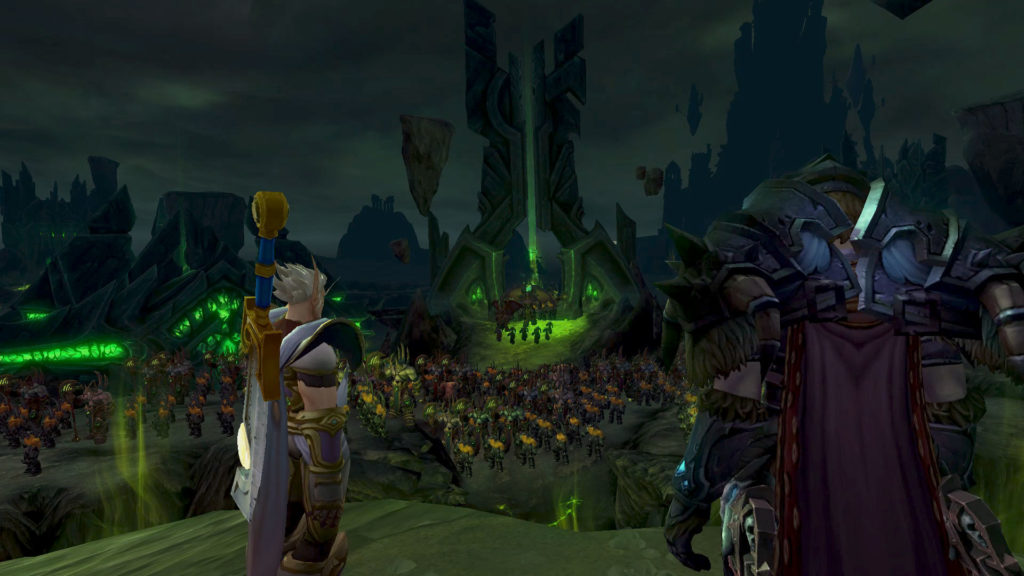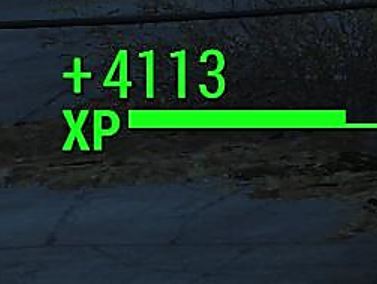I had a weird realization today.

I once again jumped on the World of WarCraft train for Legion. I mean, I sorta have to at this point, given my dedication to the game and all. What surprised me is how fast I adjusted to the game – years of muscle memory and familiarity make it a comforting experience, no matter how much stuff they end up changing, turns out. Yet again I find myself on the grind treadmill, seemingly enjoying it. And I think I have a pretty good explanation why (which has absolutely nothing to do with World of WarCraft).
Most of the video games I played contain what I’d call “incentive structures” – that is, they motivate the player in some way to continue playing the game. You can think of these as the little rewards, a trail of breadcrumbs meant to entice the player onward to further victories or progress in a particular level, set of levels, or what have you. Many games place tangible rewards in front of the player – whether it be gear, level ups, items, or otherwise – which require certain actions on their part. Achievement systems also play into this, with such stirring tasks as “collect all the things!” being one that does reward you with stuff (usually).
Thing is, not all games have such straightforward rewards. In the history of video games, the little rewards on the path to completion (or, at least, whatever you can call completion) mostly consisted of winning or losing. If you won, yay – more levels and stuff to play. If you lost, try again a lot. There’s no real in-between, no set of tiny rewards, only the joy of self-motivation. If you’re curious, I’d say this is why video games became more and more popular (engrossing too, depending on your predilections) – the tiny trail of rewards keeps people playing long after they should stop. So, you can imagine game developers all over the place started throwing this stuff into their games, for both good and ill.

This explains why I tend to lose interest in certain games, and why other games simply drop off for me. I like fighting games, sure, but there’s a big difference between winning and losing. How do you even know what you did wrong in a match? What constitutes improvement, progress, forward movement? It is very much a factor of individual quantification of achievement. Most arcade games are like this, of course; getting an extra level down pat in Mushihimesama, for example, is quite a reward in itself once you realize you’ve hit that level of skill. But, for the vast majority of people, that proves to be particularly difficult.
In other words, games without a clear progression path can lose a good number of players who simply aren’t dedicated to the task. More often than not, that can be me in a lot of games I’ve played. I like Guilty Gear Xrd a lot, but I often only play the Challenge mode content to shore up my execution, rather than jumping into online play immediately. Losing a whole lot is absolutely the way to understand the game better, but that offers no tangible reward. The Challenge mode, on the other hand, tells me whether or not I completed Task X, and that becomes a far more interesting stepping stone to “getting better”. Maybe that’s not a good way to look at it, but subconsciously I know this to be true.
I think this is why adventure games often fail to hold my interest as well. Solve puzzle, progress, or make decision and progress, are about the only two things happening. If you lack any investment in the story, then you will probably quit pretty fast, and that’s usually what happens to me. I just don’t find the stories in those games very interesting, because the reward is a weirdly intangible one (see what happens when you do a thing!), whereas the feedback from more action-focused genres just seems so much more straightforward (hit a button, a thing happens!). Additionally, I’ve never been one for logic puzzles of any kind – I still have bad memories of the SATs and GRE, thank you very much – so that aspect of adventure games totally turns me off. Arkham games are about as close as I’ll ever get.

The question, then, is this: am I really thinking about this the right way? No, probably not. Why should we need tangible rewards in video games? Shouldn’t the game be a reward in itself to play? I’d like to think that way, but for some reason my habits go against that more philosophical belief into base animal instincts. Who doesn’t love getting a whole lot of stuff, or watching a whole lot of numbers go up? I certainly do, and I’ve loved getting good grades for a long time in school environments. I’m guessing I simply equate rewards with achievement, and that is where my current impasse comes from.
Obviously, I am trying to break out of that habit, but that’s hard! As it should be! Ingrained modes of life take a long time to reform, as pretty much any major change in your life demonstrates. I need to remember that even in recreation, some things don’t necessarily require a task/reward component to them. I’m missing out on a lot of things simply from these weird impulses. Failing to correct them could be problematic down the road – the Bible provides plenty of examples of that…
29 When Jacob had cooked stew, Esau came in from the field and he was [v]famished; 30 and Esau said to Jacob, “Please let me have a swallow of [w]that red stuff there, for I am [x]famished.” Therefore his name was called [y]Edom. 31 But Jacob said, “[z]First sell me your birthright.” 32 Esau said, “Behold, I am about to die; so of what use then is the birthright to me?” 33 And Jacob said, “[aa]First swear to me”; so he swore to him, and sold his birthright to Jacob. 34 Then Jacob gave Esau bread and lentil stew; and he ate and drank, and rose and went on his way. Thus Esau despised his birthright.
Genesis 25
